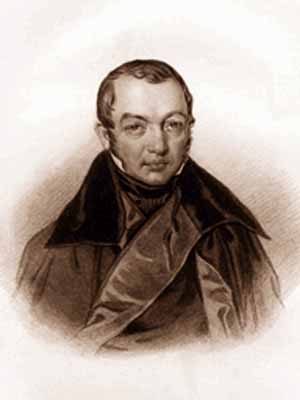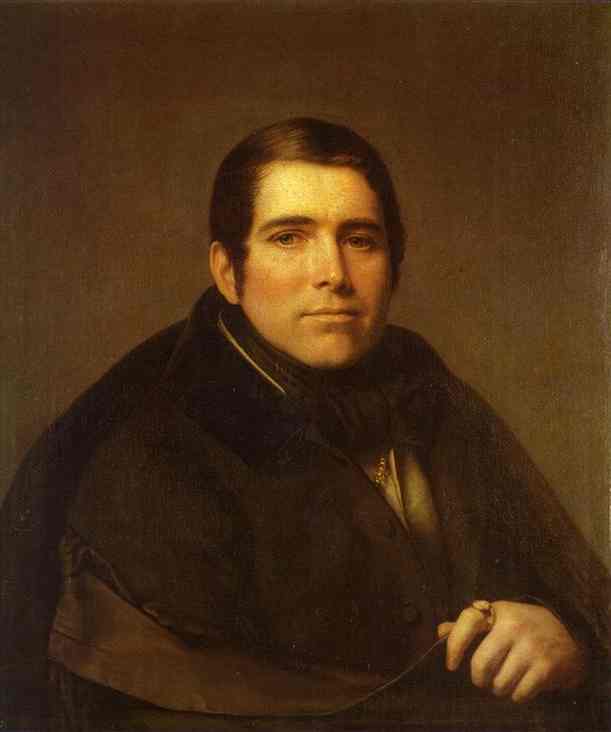|
Nikolai Melgunov
Nikolai Alexandrovich Melgunov (russian: link=no, Николай Александрович Мельгунов; April 1804, – 16 February 1867) was a Russian writer, publicist, translator from German and French, and music critic, described as one of the most prolific and diverse authors of his time. Biography Melgunov was born in village Petrovskoye in Oryol Governorate to a noble family of a retired army officer, and received good home education.Evseyeva, M.KMelgunov's biographyat The Russian Writers Biographical dictionary // Русские писатели. 11–20 вв. Биографический словарь. Том 3. М., "Советская энциклопедия", 1994 In his teens he was sent to Kharkov to be tutored for the university exams and spent there three years which he later remembered with great affection. In 1818 the 14-year-old published his first translation, from French (''The Coming of Spring'', from Bernardin de Saint-Pierre), in ''Ukrainsky Vestn ... [...More Info...] [...Related Items...] OR: [Wikipedia] [Google] [Baidu] |
Livensky District
Livensky District (russian: Ли́венский райо́н) is an administrativeLaw #522-OZ and municipalLaw #442-OZ district (raion), one of the twenty-four in Oryol Oblast, Russia. It is located in the southwest of the oblast. The area of the district is . Its administrative center is the town of Livny (which is not administratively a part of the district). Population: 32,791 ( 2010 Census); Administrative and municipal status Within the framework of administrative divisions, Livensky District is one of the twenty-four in the oblast. The town of Livny serves as its administrative center, despite being incorporated separately as a town of oblast significance—an administrative unit with the status equal to that of the districts. As a municipal division, the district is incorporated as Livensky Municipal District. The town of oblast significance of Livny is incorporated separately from the district as Livny Urban Okrug.Law #449-OZ Notable people * Nikolai Nikolaevich Pol ... [...More Info...] [...Related Items...] OR: [Wikipedia] [Google] [Baidu] |
Teleskop
''Teleskop'' (russian: Телескоп) was a Russian literary, philosophical and political magazine published in Moscow in 1831-1836 by Nikolai Nadezhdin, who was also its editor-in-chief. Originally a fortnightly publication, it became a weekly in 1834. Another Nadezhin's project, ''Molva'' (Молва, Rumour, 1831-1986), originally a 'news and fashion' magazine, in 1932 became a newspaper and literary supplement to ''Teleskop''. Among the authors whose works appeared in ''Teleskop'' regularly, were Mikhail Pogodin, Stepan Shevyryov, Alexander Pushkin, Fyodor Tyutchev, Alexander Polezhayev, Nikolai Stankevich and Alexey Koltsov. Vissarion Belinsky joined in 1833 to become a year later Nadezhdin's co-editor. In 1836 the magazine published Pyotr Chaadaev Pyotr or Petr Yakovlevich Chaadayev (russian: Пётр Я́ковлевич Чаада́ев; also spelled Chaadaev, or Čaadajev; 7 June 7 May Old Style1794 – 26 April 4 April O.S. 4 (four) is a number, numeral and ... [...More Info...] [...Related Items...] OR: [Wikipedia] [Google] [Baidu] |
Alexander Von Benckendorff
Konstantin Alexander Karl Wilhelm Christoph Graf von Benckendorff (russian: Александр Христофорович Бенкендорф, Alexander Khristoforovich Benkendorf, – ) was a Baltic German Cavalry General and statesman, Adjutant General of Tsar Alexander I, a commander of ''partisan'' (''Kossak irregular'') units during the War of 1812–13. However, he is most frequently remembered for his later role, under Tsar Nicholas I, as the founding head of the Gendarmes and the Secret Police in Imperial Russia. Family and career Alexander von Benckendorff was born into the Baltic German noble Benckendorff family in Reval (Tallinn in present-day Estonia), son of General Baron (12 January 1749, Friedrichsham – 10 June 1823, Kolga), who served as the military governor of Livonia, and of his wife Baroness Anna Juliane Charlotte Schilling von Canstatt (31 July 1744, Thalheim – 11 March 1797, Riga), who held a high position at the Romanov court as senior lady- ... [...More Info...] [...Related Items...] OR: [Wikipedia] [Google] [Baidu] |
Ksenofont Polevoy
Ksenofont Alexeyevich Polevoy (russian: Ксенофонт Алексеевич Полевой, 1 August 1801, Irkutsk, Imperial Russia, – 21 April 1867, Tyukhmenevo, Smolensk Governorate, Imperial Russia) was a Russian writer, literary critic, journalist, publisher and translator. He was the younger brother of the writers Yekaterina Avdeyeva and Nikolai Polevoy. Among the biographies Ksenofont Polevoy authored were those of Mikhail Lomonosov (1836, praised by Vissarion Belinsky) and Ivan Khemnitser (1838), as well as his brother, whom he idolized (''The Notes on the Life and Works by Nikolai Polevoy'', 1888). In 1835–1839 he translated from French 16 volumes of ''Memoires ou souvenirs historiques'' (1831) by Laure Junot Laure may refer to: * ''Laure'' (film), a 1976 Italian erotic film in the Emmanuelle universe * '' Doxocopa laure'', commonly known as the Laure, a butterfly People * Laura (given name) (French variant) * Laure (art model) (fl. 1859–1867), Fr . ... [...More Info...] [...Related Items...] OR: [Wikipedia] [Google] [Baidu] |
Faddey Bulgarin
Thaddeus Venediktovich Bulgarin (russian: Фаддей Венедиктович Булгарин; Polish Jan Tadeusz Krzysztof Bułharyn, – ), was a Russian writer, journalist and publisher of Polish ancestry. In addition to his newspaper work, he rejuvenated the Russian novel, and published the first theatrical almanac in Russian. During his life, his novels were translated and published in English, French, German, Swedish, Polish, and Czech. He served as a soldier under Napoleon, and in later life as an agent of the Czar's secret police. As a writer his self-imposed mission was to popularize the authoritarian policies of Alexander I of Russia, Alexander I and Nicholas I of Russia, Nicholas I. Life and career Bulgarin was born into a noble Poles, Polish family near Minsk, Belarus (then Polish–Lithuanian Commonwealth). His father, one of Kosciuszko's associates, was exiled to Siberia for having assassinated a Russian general. Bulgarin was educated in a Saint Petersburg, ... [...More Info...] [...Related Items...] OR: [Wikipedia] [Google] [Baidu] |
Severnaya Ptchela
''Northern Bee'' (russian: Северная пчела) was a semi-official Russian political and literary newspaper published in St. Petersburg from 1825 to 1864. It was an unofficial organ of Section Three (the Third Section of His Imperial Majesty's Own Chancellery) – the secret police. ''Northern Bee'' was founded by the reactionary writer (and police informer) Thaddeus Bulgarin in 1825. In 1831 through 1849 he published it in conjunction with Nikolai Grech. From 1825 to 1831 it came out three times a week, then daily after that. The paper was pitched toward readers who belonged to the middle classes (the serving gentry, provincial landlords, officials, merchants, burghers). In addition to domestic and foreign news, literature, and criticism, the paper printed a mix of inspirational stories and philosophical essays, bibliographies, and fashion pieces. At first the paper showed a liberal bent, printing the works of Pushkin, Kondraty Ryleyev, and Fyodor Glinka. But after the D ... [...More Info...] [...Related Items...] OR: [Wikipedia] [Google] [Baidu] |
Yakov Grot
Yakov Karlovich Grot (russian: link=no, Я́ков Ка́рлович Грот) ( – ) was a nineteenth-century Russian philologist of German extraction who worked at the University of Helsinki. Grot was a graduate of the Tsarskoye Selo Lyceum. In his lifetime, he gained fame for his translations of German and Scandinavian poetry, his work on the theory of Russian orthography, lexicography, and grammar, and his approach to literary editing and criticism, exemplified in a full edition of the works of Derzhavin (1864–1883). His ''Russkoye Pravopisaniye'' (1878, 1885) (, ''Russian orthography'') became the standard textbook of Russian spelling and punctuation until superseded by the decrees of 1917–1918, although his definition of the theoretical foundations remains little changed to this day. Shortly before his death, he assumed the compilation of ''Academic dictionary of Russian'' (1891–1923), which, although continued by Aleksey Shakhmatov, was never to ... [...More Info...] [...Related Items...] OR: [Wikipedia] [Google] [Baidu] |
Pyotr Pletnyov
Pyotr Alexandrovich Pletnyov (russian: Пётр Александрович Плетнёв; , Tebleshi, Tver Governorate — ) was a minor Russian poet and literary critic, who rose to become the dean of the Saint Petersburg University (1840–61) and academician of the Petersburg Academy of Sciences (1841). Pletnyov befriended the poet Alexander Pushkin, who dedicated his novel in verse ''Eugene Onegin'' to him. After Pushkin's death in 1837, Pletnyov edited his literary journal ''Sovremennik'' until the latter was sold to Nikolai Nekrasov in 1846. As a critic, he was strongly opposed to Vissarion Belinsky and like-minded journalists who placed "progressive ideas" above the artistic mastership. With Sergey Uvarov's support, Pletnyov gained many teaching assignments, in and around Saint Petersburg, including in the end a tutor's post to the future Alexander II. His non-partisan view of various literary movements helped him to single out and applaud all of the most gifted wri ... [...More Info...] [...Related Items...] OR: [Wikipedia] [Google] [Baidu] |
Alexey Khomyakov
Aleksey Stepanovich Khomyakov (russian: Алексе́й Степа́нович Хомяко́в; May 13 ( O.S. May 1) 1804, Moscow – October 5 (O.S. September 23), 1860, Moscow) was a Russian theologian, philosopher, poet and amateur artist. He co-founded the Slavophile movement along with Ivan Kireyevsky, and he became one of its most distinguished theoreticians. His son Nikolay Khomyakov was a speaker of the State Duma. Biography Khomyakov's whole life was centred on Moscow. He viewed this "thousand-domed city" as the epitome of the Russian way of life. Equally successful as a landlord and conversationalist, he published very little during his lifetime. His writings, printed posthumously by his friends and disciples, exerted a profound influence on the Russian Orthodox Church and Russian lay philosophers, such as Fyodor Dostoyevsky, Konstantin Pobedonostsev, and Vladimir Solovyov. For Khomyakov, socialism and capitalism were equally repugnant offspring of Western deca ... [...More Info...] [...Related Items...] OR: [Wikipedia] [Google] [Baidu] |
Delvig
Baron Anton Antonovich Delvig (russian: Анто́н Анто́нович Де́львигIn Delvig's day, his name was written Антонъ Антоновичъ Дельвигъ., Antón Antónovich Délʹvig, ɐnˈton ɐnˈtonəvʲɪtɕ ˈdelʲvʲɪk; german: Anton Antonowitsch Freiherr von Delwig; , Moscow – , St. Petersburg) was a Russian poet and journalist of Baltic German ethnicity. Life Anton Delvig was of Baltic-German descent from paternal side. He studied in the Tsarskoye Selo Lyceum together with Alexander Pushkin and Wilhelm Küchelbecker with whom he became close friends. Küchelbecker dedicated a poem ('O, Delvig') to him; this poem was later set to music by Dmitri Shostakovich in the ninth movement of his fourteenth symphony. Delvig is also mentioned in Pushkin's famous novel in verse '' Eugene Onegin'', being compared to the young poet Lensky. Delvig commissioned a portrait of Pushkin from Orest Kiprensky, which Pushkin bought from Delvig's widow after ... [...More Info...] [...Related Items...] OR: [Wikipedia] [Google] [Baidu] |
Pushkin
Alexander Sergeyevich Pushkin (; rus, links=no, Александр Сергеевич ПушкинIn pre-Revolutionary script, his name was written ., r=Aleksandr Sergeyevich Pushkin, p=ɐlʲɪkˈsandr sʲɪrˈɡʲe(j)ɪvʲɪtɕ ˈpuʂkʲɪn, a=ru-Pushkin.ogg; ) was a Russian poet, playwright, and novelist of the Romantic era.Basker, Michael. Pushkin and Romanticism. In Ferber, Michael, ed., ''A Companion to European Romanticism''. Oxford: Blackwell, 2005. He is considered by many to be the greatest Russian poetShort biography from University of Virginia . Retrieved 24 November 2006.Allan Rei ... [...More Info...] [...Related Items...] OR: [Wikipedia] [Google] [Baidu] |



